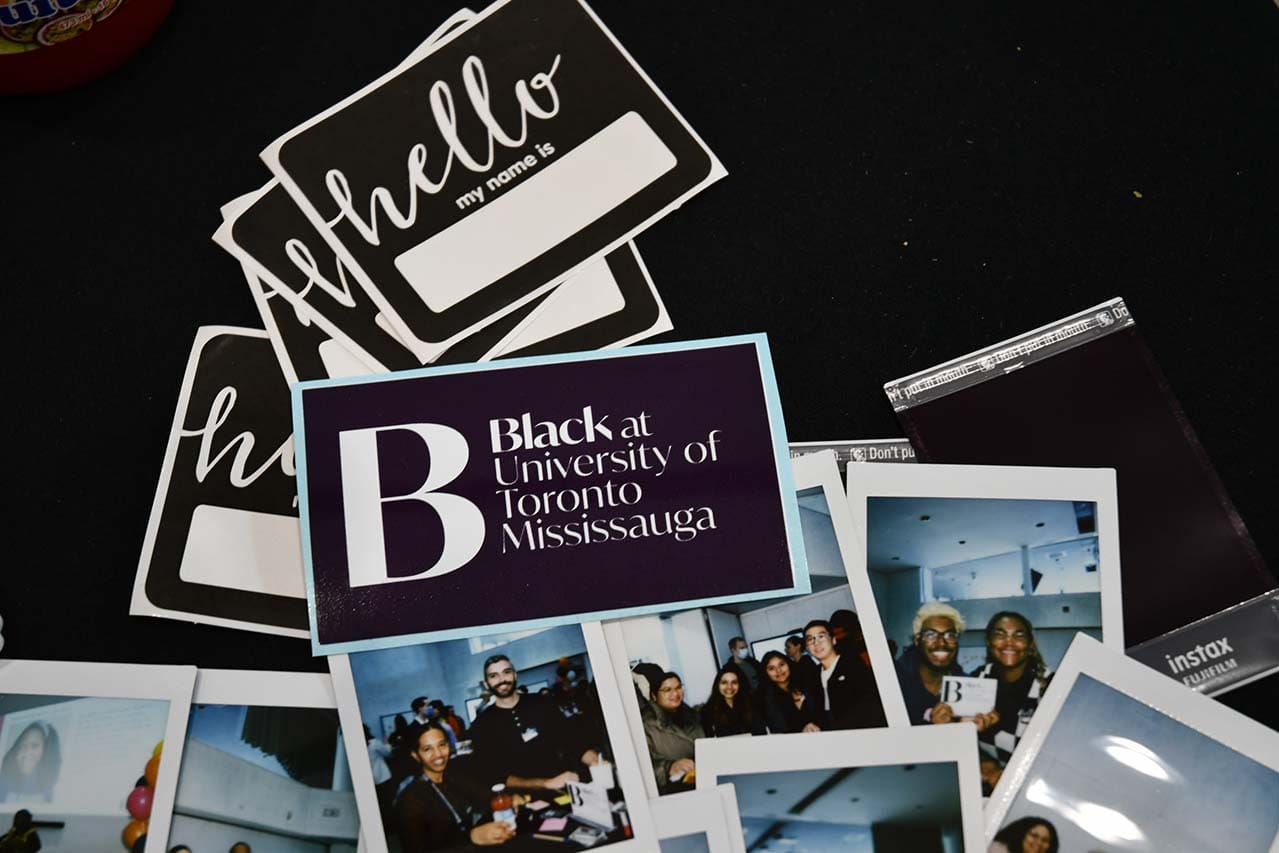Originally posted by Sharon Aschaiek on October 11, 2024 at https://www.utm.utoronto.ca/main-news/how-utm-combatting-anti-black-racism-and-catalyzing-progress
One afternoon a week, Black-identifying students at the University of Toronto Mississauga would meet to share about their mental well-being and receive support tailored to their distinct needs as racialized people. Facilitated by Black-identifying counsellors, the small group sessions help participants break through the shame that can surround mental health issues in Black culture and develop strategies to manage distress and build resilience.
The sessions, part of a winter program called the Black & Living Well Workshop Series, were introduced by the Health & Counselling Centre (HCC) in response to a recommendation in the March 2021 Report of the University of Toronto Anti-Black Racism Taskforce. The report advised hiring more Black mental health professionals who understand the experiences and traumas of Black students, and promoting their services among Black students.
“Breaking the stigma around mental health in Black culture is important,” says Martin Kengo, the manager of Black initiatives, a newly created role in the Office of the Vice-President and Principal.
HCC Counsellor Jeahlisa Bridgeman said the workshop series was well received and organizers hope to offer it again in the winter 2025 semester. In alignment with the goals set out in the ABR taskforce report, HCC also developed a drop-in Communities and Connections program for students who identify as Black, Indigenous and People of Colour.
“We want to make sure students know there’s support and care available to them as they navigate not just academic pressures but social, cultural and familial pressures,” says Kengo.
Last year, UTM developed the Anti-Black Racism & Black Inclusion and Excellence Dashboard to track the evolution of ABR efforts on campus, like those undertaken by HCC and other teams, and raise their profile across the institution.
Confronting and dismantling ABR at U of T became a heightened priority for the institution following the May 2020 murder in the U.S. of unarmed Black man George Floyd by a white police officer, which sparked a surge of activism for Black rights and inclusion across North America. In September of that year, the university introduced its Anti-Black Racism Task Force of faculty, staff and students who systematically reviewed existing practices, processes and policies for their ability to tackle ABR and promote Black inclusive excellence. Their efforts resulted in 58 recommendations to achieve meaningful change in operations, academics, student services and faculty and employee functions.
UTM’s work to combat ABR is reflected in a broad range of initiatives that have been undertaken by all academic and administrative areas — and it’s all captured in the dashboard. Helping to maintain this momentum is the UTM Black Leadership Advisory Committee, in which Black-identifying faculty and staff meet to share about their initiatives in order to boost Black belonging, scholarship and advancement.
“The dashboard is a visible manifestation of UTM’s commitments in action. It shows that we take addressing racism seriously and want to be transparent about our progress,” says Heather Hines, director of office in the Office of the Vice-President and Principal. “I think the dashboard is also motivational and aspirational. It helps others to imagine how they, too, can take action and that even the simplest ideas can have a great impact.”
A year and a half after the introduction of the dashboard, it’s easy to see the progress that has been made on this diversity, equity and inclusion priority by more than 30 academic and non-academic units across campus. Among them are:
- Developing departmental DEI committees;
- Revising recruitment materials to be more welcoming to Black students;
- Promoting anti-racism training opportunities to employees;
- Surveying students on their experiences of racism;
- Providing greater support for the careers of Black students after graduation; and
- Introducing an art exhibition at the Blackwood Gallery focused on the knowledge, resistance and resilience of Black women.
In the area of promoting Black scholarship, the Office of the Vice-Principal, Research and Innovation established the Black, Indigenous, and/or Racialized Scholar/Research Grant Program as a way to promote studies and collaborations that can help address the historic and contemporary effects of racism in society. Featuring research seed funding and workshop/outreach grants, the initiative supports Black scholars working in any area of research, or faculty members focusing on racism, social justice or decolonization.
Meanwhile the UTM Library is diversifying its collection to include more resources that address racial inequities. It developed Black on the Shelf, a collection of books showcasing Black excellence that were recommended by Black students, published by Black scholars or focus on anti-racist and inclusive pedagogies.
It also partnered with UTM’s Institute for the Study of University to develop the Anti-Black Racism Pedagogical Collection, which consists of books, articles, audio, video and online resources that can help educators challenge ABR and cultivate inclusive, supportive learning spaces.
“Every student has the right to be able to see themselves reflected in pedagogical materials,” Kengo says. “This is how we can help educators consider the Black and racialized lens and build cultural intelligence into their work.”

